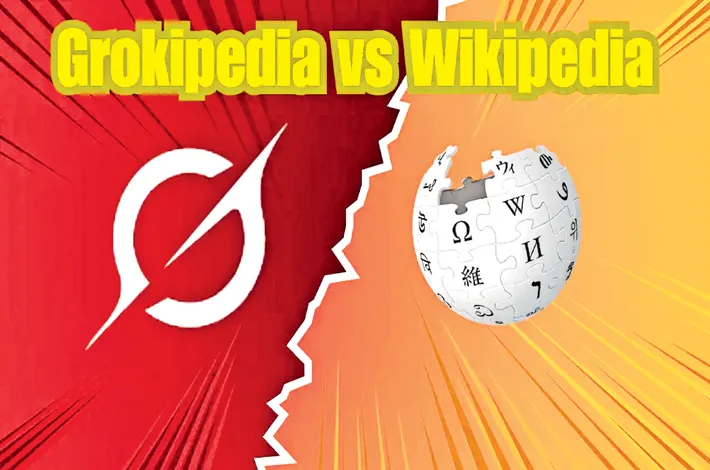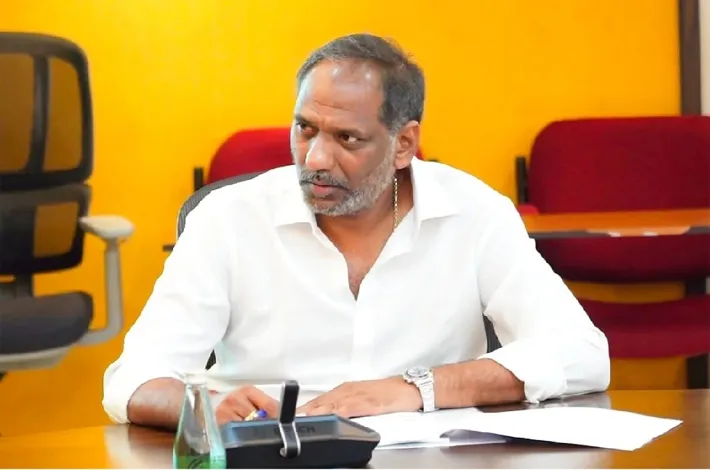Grokipedia to challenge Wikipedia
31-10-2025 12:00:00 AM

In a bold move to redefine how the world accesses knowledge, tech billionaire Elon Musk has launched Grokpedia, an AI-powered encyclopedia developed by his company xAI. Unveiled in its beta version (0.1) on October 27, 2025, Grokpedia aims to be a “smarter, faster, and fairer” alternative to Wikipedia, the long-standing digital encyclopedia that has been a global go-to for nearly a quarter of a century since its founding in January 2001.
Musk, known for his disruptive ventures, claims Grokipedia will deliver “the whole truth and nothing but the truth,” leveraging artificial intelligence to provide bias-free information with a focus on not just what happened, but why it matters. Unlike Wikipedia, which relies on human editors and a consensus-driven model, Grokipedia uses AI to generate and curate content, promising real-time updates and transparency through reasoning rather than heavy reliance on citations.
A new rivalry in knowledge curation
The launch of Grokipedia has sparked a heated debate about the future of online information. Wikipedia, often hailed for its neutrality, has faced growing scrutiny over allegations of bias, paid editing, and conflicts of interest. Critics point to instances of coordinated edits during elections, such as spikes in activity on politicians’ pages in British Columbia during Canada’s 2020 vote, and accusations of ideological slant, with some claiming a “leftist” bias in its content. Others have raised concerns about hoaxes, false information, and government censorship influencing Wikipedia’s entries.
Grokipedia, by contrast, positions itself as a revolutionary platform. Musk insists that even in its beta phase, it outperforms Wikipedia, with plans for a version 1.0 that he claims will be “10 times better.” While Wikipedia’s updates move slowly through a bureaucratic approval process, Grokipedia evolves in real time, relying on AI-driven insights rather than human intervention. Where Wikipedia depends on citations and consensus, Grokpedia builds credibility through reasoning and transparency, though it currently offers fewer citations per entry.
Public reaction and criticism
The public response to Grokipedia has been mixed. Supporters online praise its potential to challenge Wikipedia’s dominance, arguing that the latter is overdue for an upgrade. They see Musk’s AI-driven approach as a way to correct perceived biases in Wikipedia’s human-edited model. However, critics argue that Grokipedia’s articles often appear to be repurposed from Wikipedia, raising questions about originality. Some also claim that the platform reflects Musk’s own viewpoints, particularly citing entries on events like the 2020 U.S. Capitol riots, which allegedly downplay certain ideological involvements, suggesting a potential bias in Grokipedia’s AI-generated content.
Expert perspectives: AI vs. human intervention
The debate over Grokipedia versus Wikipedia hinges on the role of AI in content creation. CEO of a tech MNC emphasized the value of human intervention in Wikipedia’s model, despite its flaws. He noted that while human editors may introduce bias, AI systems like Grokipedia’s are not immune either, as they are trained on existing data sources like Wikipedia and social media platforms such as X. He questioned the reliability of AI-generated content, pointing out that Grokipedia’s entries often lack the robust citations found on Wikipedia, making it harder to verify their accuracy. “Who takes responsibility if the citations are wrong?” he asked, highlighting the accountability gap in fully AI-driven systems.
An Author specialised in tech related topics took a more critical stance on Wikipedia, calling it a “leftist paradise” that has been manipulated by young writers and questionable media sources to push narratives, particularly on sensitive topics like the Kashmir issue or the 2002 Godhra train incident in India. He argued that Grokipedia’s AI approach could offer a counter-narrative, citing its entry on the Godhra incident as aligning more closely with official reports than Wikipedia’s. However, he cautioned that neither platform should be seen as a definitive source of truth, urging users to approach both with scepticism and rely on primary news sources for facts.
As Grokipedia and Wikipedia vie for credibility, the debate underscores broader questions about trust in online information. Can AI truly eliminate bias, or does it merely shift the source of influence to those who design and train the algorithms? With Wikipedia’s established reputation and Grokipedia’s ambitious promises, the rivalry is set to reshape how we define and access truth in the digital age.








